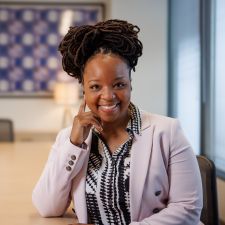Equity Warrior Savior Complex



By Dr. Tawheedah Abdullah
After the death of George Floyd and the rise of the Black Lives Matter movement, DEI took the American Public School System by storm. The emergence of self-proclaimed “equity warriors” seemed to parallel the increase in federal and district funding allocated to school-based equity initiatives.
According to Dr. Larry Leverett, equity warriors are those who “lead and embrace the mission of high levels of achievement for all students, regardless of race, social class, ethnicity, culture, disability or language proficiency” (Leverett, 2002).
Equity warriors lead schools by modeling the values of effective communication, collaboration, personal and professional growth, and risk-taking for others to emulate in the pursuit of fostering equitable school communities (Leverett, 2002).
Titling oneself as an equity warrior is honorable, however, there is a wrong way to embody this role. As an early-career teacher transitioning into school leadership, I was eager to serve my school community. I saw each opportunity to make school-based decisions as an opportunity to create equitable learning experiences for the populations who I believed needed it the most. I became particularly skilled at analyzing academic data, identifying areas of opportunity, and devoting myself to designing intervention programs to address the gaps. Regarding myself as an advocate for those who were not given the opportunity to voice their needs, I emphatically believed that I knew what was best for my school community, and no one could convince me otherwise.
I couldn’t have been more wrong. After progressing through my journey as a social justice-oriented leader, I became exposed to literature that would directly challenge my approach to being an “equity warrior” (Thank you Freire, Duncan-Andrade, Darling-Hammond, Love, Muhammad, and so many others!) I unpacked the harsh reality that I was hiding my savior complex under the guise of this title, and the way I approached leadership was, in fact, counterintuitive to the concept of equity altogether.
I came to the stark realization that I was not truly illuminating the voices of the communities I was beholden to; instead, I was amplifying my own voice. Bertrand and Rodela (2017) describe this phenomenon as Implicit Individualism, which is defined as "following the belief that [your] understandings of social justice and how to achieve it are superior to those of others" (p. 17). This paradigm also carries the assumption that you are more equipped to make decisions for these school communities than the communities themselves. Coming to terms with this was a harsh and humbling realization.
Throughout my journey as an Equity Warrior, I have learned the following:
- As equity-oriented leaders, the temptation to make unilateral decisions about students and families often stems from a genuine belief that we know what is best for them. This approach perpetuates the very hierarchies and power imbalances that we claim to be fighting against. It becomes particularly paramount for us to use our titles and positions of power as a way to amplify the leadership of young people, parents, and community members—recognizing them as experts who are fully capable of making sound decisions for themselves. This takes time, investment, and hard work. It is NOT the easy route.
- A requisite to this action is a foundational belief in mutual humanization (Freire, 1970)— recognizing that all beings, not just those who share our backgrounds, cultures or experiences, are as human as we are, as capable as we are (if not more so)… and that their backgrounds, cultures, and experiences HAVE PROFOUND VALUE.
- In practice, this means taking a listening stance and humbling oneself to the voices of the community. This means co-constructing decisions, distributing leadership, and having a genuine interest in the lives, experiences, and beliefs of community members. This means being driven, not just by quantitative academic data, but also by Street Data (Safir and Dugan, 2021)—the qualitative insights derived from listening to the lived experiences and narratives of students, families, and educators.
With these realizations, I hope to ignite similar epiphanies in other education practitioners, leaders, and policymakers. I offer the following questions: How have you grown along your journey as an equity warrior? How do you work to actively break down power dynamics in your organization? In what ways do you prioritize mutual humanization in your role? What opportunities do community members have to co-construct solutions and make decisions that impact them?
This article was crafted by Dr. Tawheedah Abdullah, an independent contributor engaged by CheckIT Labs, Inc. to provide insights on this topic.

Dr. Tawheedah Abdullah
Education practitioner, Musician, Poet, Mother, and Social Justice Warrior
See All Articles
Dr. Tawheedah Abdullah is an education researcher, practitioner, musician, poet, and mother. Holding a doctorate in Educational Leadership and Policy, she serves in critical roles across the education system, working to improve outcomes for historically underserved students. Her passion currently guides her work as the Technical Assistance Lead at the Southern Education Foundation's Equity Assistance Center–South.



